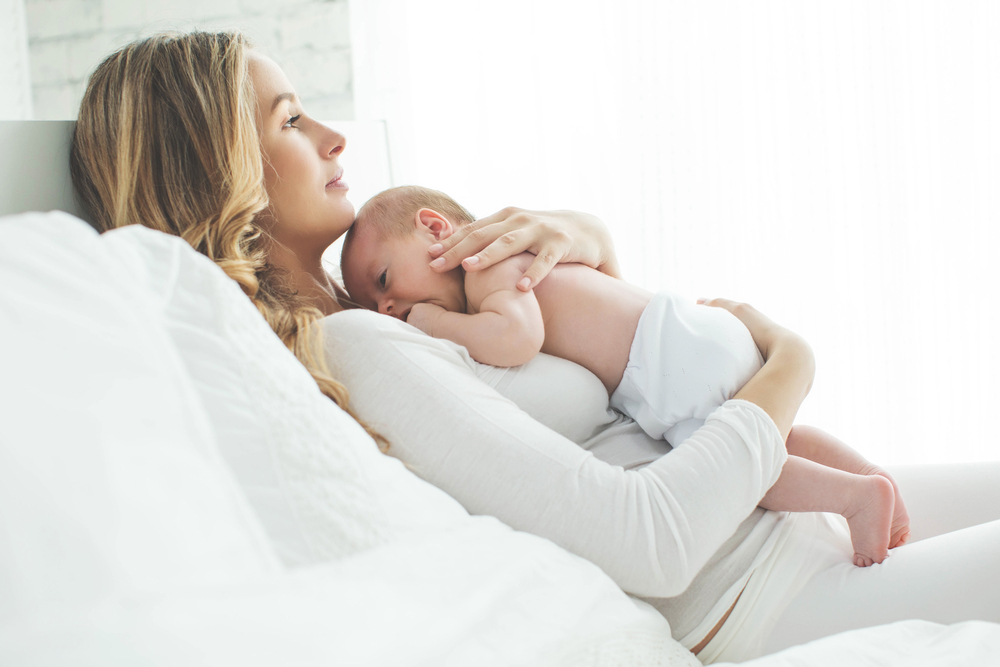The female body can withstand enormous loads during pregnancy: the whole body is rebuilt as necessary to the child. So after giving birth, a woman faces a lot of problems, from hemorrhoids to depression.
One of the most unpleasant – urinary incontinence. It is also the most common: incontinence suffers almost half of the newly minted mom. This problem is not only physiological, but also psychological: women are ashamed of their condition and don’t want to go to the doctor.
Why is this happening
Under the weight of the child the pelvic floor muscles stretch and weaken – this is the main cause of pathology. Birth injury, difficult birth, sudden weight gain, large fruit and heredity increase the chances of incontinence.
How is it manifested

Doctors there are several types of urinary incontinence:
- Urgent – arbitrary urination, which can not be controlled.
- Stress – occurs during physical exertion.
- Overflow incontinence – urine random, no urges.
- Reflex – is due to certain factors: the fear of sound of water, etc.
- Bedwetting.
- Continuous involuntary leakage of urine.
- Leakage of urine after urination.
Do I need to go to the doctor
Urinary incontinence is not dangerous: it does not lead to serious disturbances in the body, and do not develop deadly complications. In addition, most women have urinary function is restored within a year after childbirth.
And yet to the doctor you need. At least in order to eliminate the possibility of inflammation or infections – this happens in case of incontinence. And, of course, proper treatment will quickly bring you peace of mind and confidence. If the situation seems too delicate to discuss even with a doctor, take a look at the statistics: one in four women in the world suffer from urinary incontinence! It is unlikely you will be able to surprise the doctor with their problem.
What happens at the doctor

The urologist will ask you a few standard questions: how often are uncontrolled urination, in what situations, for how long, etc.
Sometimes doctors suggest 3-4 days to write the diary of urination, which you should record:
- How much water I drank
- How many times went to the toilet
- How many times happened involuntary urination and where were you at this point
- Any other information that you deem useful
At the same time the urologist will conduct a standard examination of the vagina, cystoscopy – inspection of the inner surface of the bladder, ultrasound, urine and blood samples. Don’t be surprised if he asks you to cough – you need to fix, is it excreted in the urine.
After the doctor collects all the data and get the results of his tests, he will diagnose and prescribe treatment.
How to treat postpartum urinary incontinence?
The main part of treatment is physical exercise for the muscles of the pelvic floor. You have to keep the muscles of the vagina specially designed “weights” with increasing weight. Bladder training is also effective, you might have some time to visit the toilet on schedule. Physical therapy will help to return muscle tone – in the session they are stimulated by electromagnetic procedures.
Drug incontinence does not exist, but your doctor may prescribe a sedative, a drug to improve blood circulation, strengthen the vessel walls or vitamins.
If in the course of the year conservative treatment does not give any results, you will be offered a surgical solution method.
That’s a long wait. All this time, I won’t be able to live a full life?
. For this there are absorbent underwear and urological pads Depend. It was created taking into account anatomic features, so it’s as comfortable and soft as normal underwear. But it Depend quickly absorbs moisture, keeps odor and protects against leakage.
